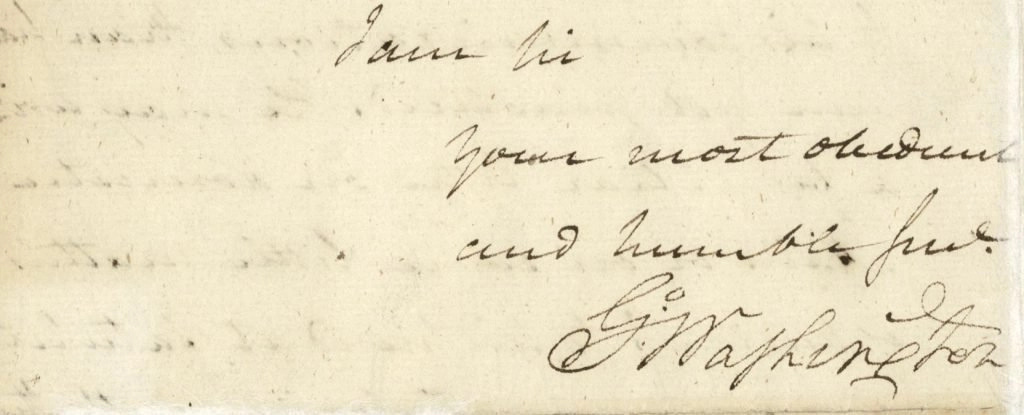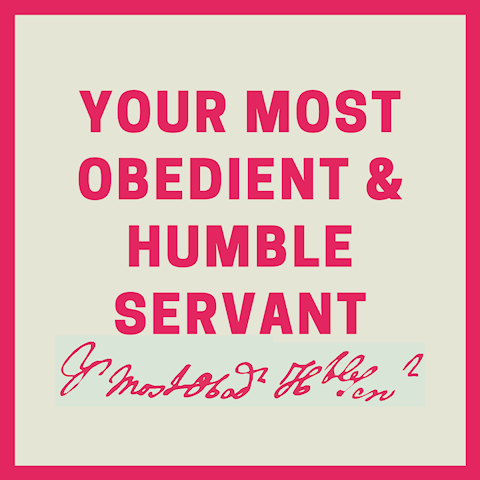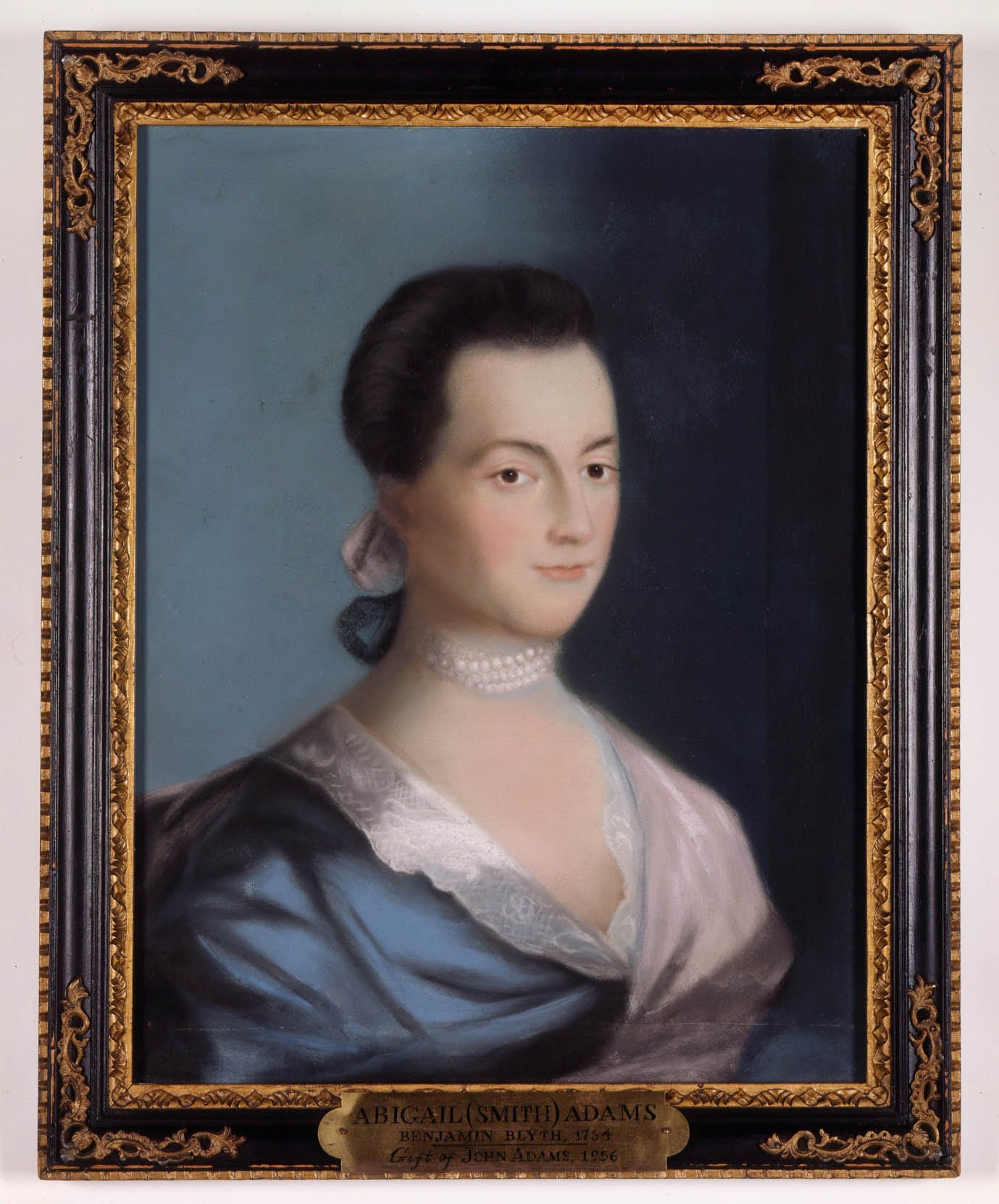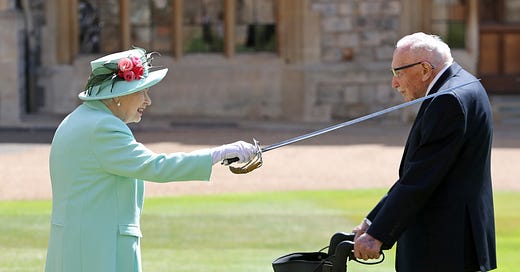The Queen Hasn’t Returned My Letter
ICYMI, I was in conversation with Mike Duncan (who wrote two essays for this newsletter) at the Strand.
Earlier this year, I mailed a historical query to Queen Elizabeth II and I haven’t heard back. I know…Queen Elizabeth has got a lot on her plate: she’s the head of the United Kingdom and 16 Commonwealth realms, patron to so many charities and institutions, including several pigeon racing societies. (Read more about that in Majesty Magazine.) And there are all those houses and gardens and horses and descendants to keep track of. It’s been a hard year for her, too. Prince Phillip, her husband of 73 years, died at the age of 99. . And as most sentient beings know, Prince Harry and Meghan Markle have fled to a rebel nation. I’m new to Royal Family protocol, but it seems my only recourse is to send another letter and, like the last time, follow every rule and tradition.
This includes a suggested sign-off: “I have the honour to be, Madam, Your Majesty’s humble and obedient servant.” Maybe that’s why she hasn’t responded; as an American, I am not her humble and obedient servant.

I’ve used this sign-off before, but only in jest during my years studying George Washington. He favored iterations of the phrase long after he’d helped evict the crown, and he continued using it until he died. “With great truth & sincerity, I have the honor to be Dear Sir Your Most Obedt & Affecte Servt,” he wrote to John Quincy Adams in June 1797. Two years later, Washington ended a letter to Adams, “With great, & sincere respect & esteem I am—Dear Sir Your Most Obedient and Very Hble Servant.”
This was the saccharine, backscratcher 18th century equivalent of “sincerely” mixed with “warmly” and “I’m at your disposal,” but it always struck me as a weird move. Washington had otherwise shed the monarchical vestiges of the past, so why not use a sign-off that indicates his independence and autonomy? His nemesis Thomas Jefferson appeared to. (More on founding frenemies in the book.) He was writing “Yours affectionately” to James Madison by 1810.

“This fits very much with George Washington's personality,” Kathryn Gehred, a research editor at the University of Virginia’s Washington Papers and host of the podcast “Your Most Humble Obedient Servant,” told me. “He wasn't all that interested in bending the rules of society and decorum like Thomas Jefferson, and he didn't have quite the level of anxiety over perceived status as John Adams. Washington ended his political letters the same way he'd end a letter with a person sending him a shipment of corn.”
Kathryn found plenty of examples of the phrase in an 18th century schoolbook called The art of writing, illustrated with copper-plates: to which is added, a collection of letters, and directions for addressing persons of distinction either in Writing or Discourse, as well as personal sign-offs. "Your affectionate mother” may have been appropriate for Martha Washington, but a "Honoured Madam, Your most dutiful Daughter” was likely expected from Patsy. Kathryn’s favorite sign-off was from a sample letter between siblings in a fight: "Your affectionate, tho' much injur'd Brother."

Next time, I’ll add a “most” before my “humble” and a “very” before my “obedient servant,” as Kathryn suggested. But let’s face it, the Queen of England is unlikely to send a response to me in New York. That’s just how research works. There are a lot of dead ends and disappointments, often because access is denied. Kathryn knows that, so she left me with what any American historian in my unfortunate position would want: Abigail Adams snark.
In a letter to her sister, Mary Smith Cranch, Adams describes her meeting with the Queen of England in 1785:
The Queen was evidently embarrased when I was presented to her. I had dissagreeable feelings too [...] As [to] the Ladies of the Court, rank and title may compensate for want of personal charms, but they are in general very plain ill shaped and ugly, but dont you tell any body that I say so.
See you next week! Until then, you can find me on Twitter and Instagram, and the books we’ve mentioned on Bookshop and Amazon.




